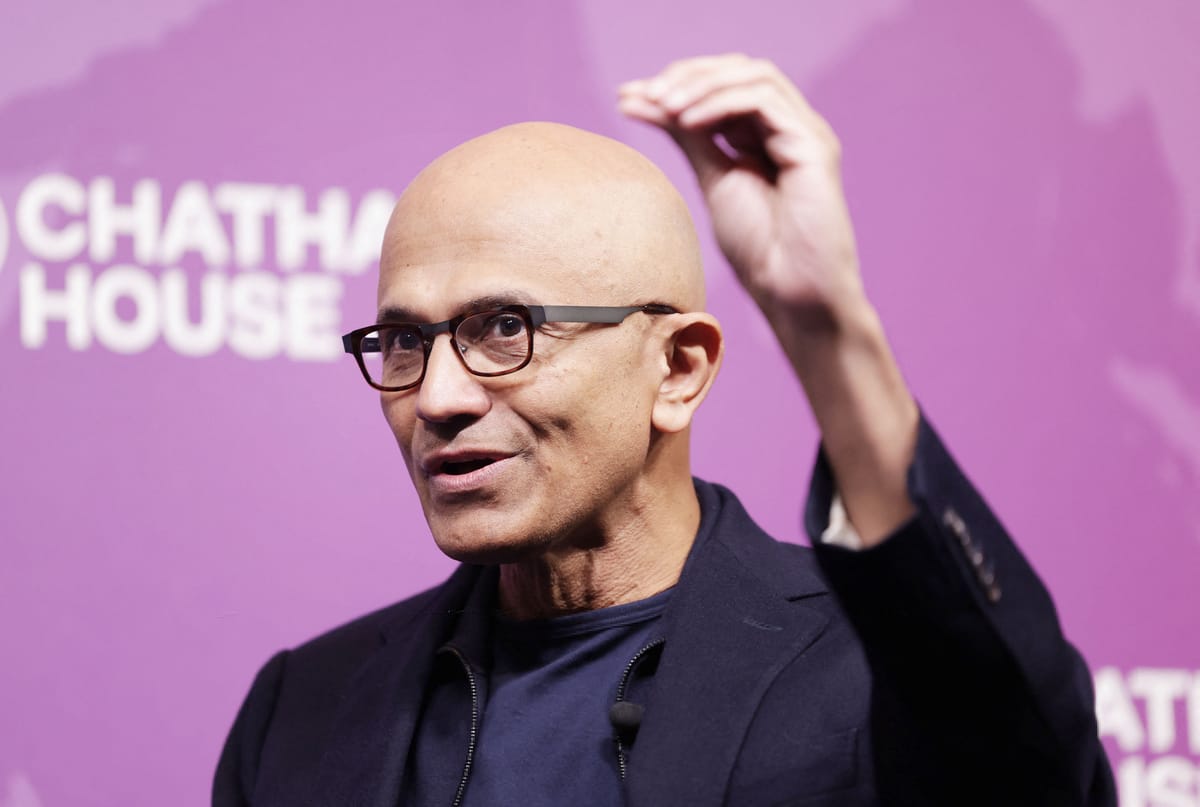Tech giants like Microsoft are heading to India for AI advancement
Over the next week, top executives from Microsoft and Alphabet (the parent company of Google) are touring India.

A few minutes every morning is all you need.
Stay up to date on the world's Headlines and Human Stories. It's fun, it's factual, it's fluff-free.
The backstory: With artificial intelligence (AI) on the rise all around the world, the race is on for developing, applying and regulating the new technology, and India is emerging as a key player. The International Monetary Fund (IMF) published a piece in December about the potential India has to produce and use AI, saying, "Indians will use AI every day more than in any other country in the world," adding that the nation's on the verge of a technological revolution. With India's advances in space technology last year, this isn't too much of a surprise.
India currently has over 5 million programmers, and it's on track to have one of the largest pools of AI talent for startups and global businesses. As AI advances, expertise in the tech is limited, but India could help solve that problem. Last year, Nvidia CEO Jensen Huang went on a tour of India and said that the country could be the world's largest exporter of AI expertise.
More recently: India has already been an important testing ground for AI. For example, last May, Microsoft introduced one of its "AI for Good" projects, the Jugalbandi chatbot. The bot helps rural farmers in India, specifically those who speak less common dialects, learn about and access public services like scholarships.
The company believes AI can bring people together and combat the language barrier common throughout the nation. After all, India has at least 120 languages, with Hindi and English being the top two. But there are another 1,300 local dialects across the country, meaning there are tens of thousands of Indians that don't speak either of the main languages.
The development: Over the next week, top executives from Microsoft and Alphabet (the parent company of Google) are touring India to introduce themselves to the market and its many programmers while pushing for adopting more AI services.
Next week in Bangalore, Microsoft CEO Satya Nadella will present to developers and technologists about the new possibilities of AI and also speak with industry leaders about the vast opportunities and potential challenges that next-generation AI could bring. Microsoft also recently said it would train 100,000 developers in India on the latest AI tech.
Google's chief scientist, Jeff Dean, plans to speak about the future of AI with researchers, developers and startups and chat about how India can help AI have a widespread impact on society.
Key comments:
"There's a worldwide transition toward AI in the next five to ten years, and the Indian developer will be at the heart of it," said Nandan Nilekani, chairman of Asia's second-largest technology services firm, Infosys. "The Indian developer will determine which AI stack will dominate."
"It's reasonable to expect a lot more top AI companies to head to India," said Sangeeta Gupta, senior vice president of Nasscom. "Enterprises want to adopt AI, and developers can speed up the transition."
"There are two fundamental shifts happening with AI — the first is the natural user interface and the second is the reasoning, which is powerful," said the president of Microsoft India & South Asia, Puneet Chandok. "I still see a lot of organizations which just dip their toes. Do not wait for this technology to evolve, it keeps evolving every day."
"By 2026, India will have eclipsed the US. India is very uniquely positioned to enable the adoption of AI at scale at home and in international markets," said Microsoft Asia's President Ahmed Mazhari.




Comments ()